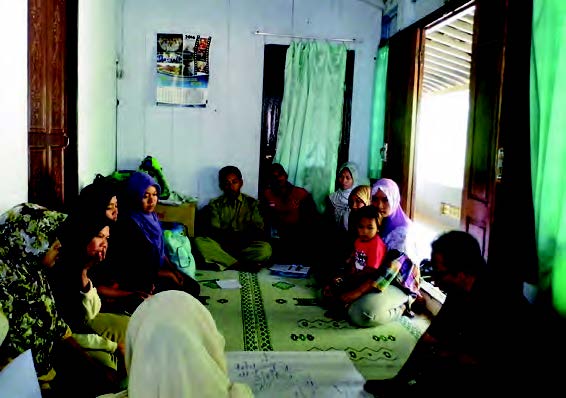
Description of the project: The Gemawang, Kaloran & Temmangung districts in Central Java are threatened by water scarcity and landslides due to deforestation. This project empowers women’s groups to identify and implement adaptation strategies within their communities. The women conduct field assessments and feasibility studies with village authorities and water experts and select appropriate water management technologies to adapt to a changing environment. They use water saving solutions, water infiltration techniques and ecological sanitation, thus improving livelihoods in their communities.
Climate Impact: Massive deforestation in the Central Java area has significantly reduced groundwater supply and led to a severe drought. The changing function of the forest has also caused serious damage to the land and increased the risk of landslide. The women’s groups and people in the sub-villages have worked together to develop sustainable water management systems, preserve important old trees and re-plant young trees around the water sources to prevent landslide, as well as maintaining water supply through infiltration and preserving a balanced ecosystem. These measures are effective climate adaptation strategies.
Gender Impact: The project was initiated by women. The women’s groups are actively involved in decisions on water management technology and they do advocacy both at local and regional level. 10 members of the women’s group Muncar Lor’s were involved in the regional authority’s field assessment on water. Gender equality is also strengthened by income generating activities through the sale of water technology. This new income can be used for maintaining facilities, setting up social funds, and ensuring self-development.
Scalability /replicability: Replicability is ensured by the use of Participatory Rural Appraisal (PRA) in identifying capacity and vulnerability of the community. Scalability can be reached by an organized structure within the women’s groups, with three members acting as main coordinators (head, secretary, and treasurer). Capacity building is conducted via trainings.